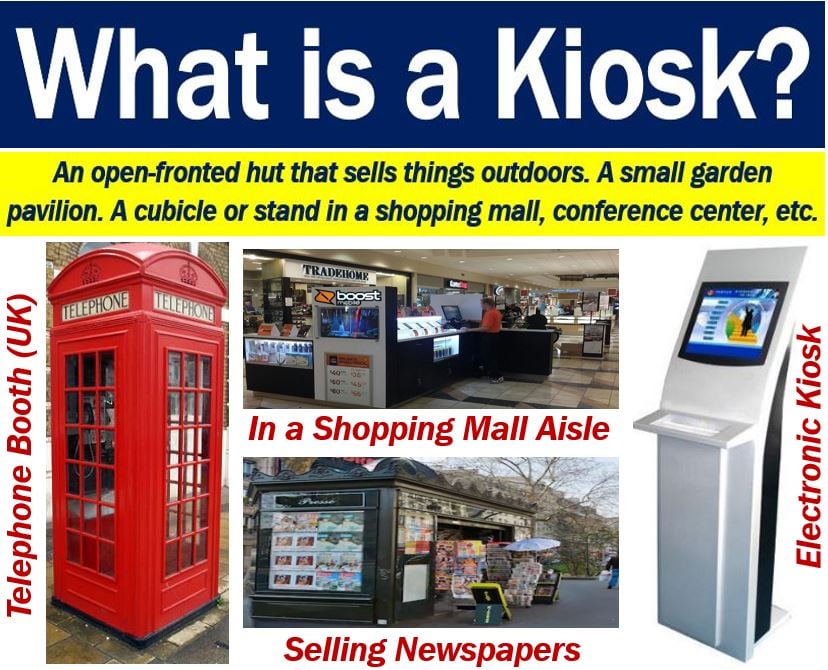A kiosk is a free-standing display inside a shopping mall or a small cubicle or hut that sells newspapers. It may be a small hut or cubicle that sells tickets or snacks. A kiosk may also be a stand or cubicle that provides information or promotes something in a conference or exposition. In the United Kingdom, the term may refer to a telephone booth.
Kiosks are also small, separated garden pavilions that are open on some or all sides. They were once common in Persia, the Ottoman Empire, and the Indian subcontinent. In fact, they are still fairly common in the Balkan states.
Shopping malls, museums, and tourist towns have information kiosks or booths. They dispense maps, pamphlets, and other literature. Some of them have an attendant who also offers information and advice.

Etymology of kiosk
Etymology is the history of the origin and evolution of words and their meanings. An etymologist is an etymology specialist. This information on the origin and evolution of the word ‘kiosk’ in English comes from The Online Etymology Dictionary.
The word first appeared in the English language in Britain in the 1620s. At that time it meant ‘kind of open pavilion.’ The word came from French ‘Kiosque.’
The French word, along with Polish and German ‘Kiosk,’ came from Turkish ‘Koshk, Kiöshk. Koshk,’ which meant a pavilion or summer house. The Turkish word came from Persian ‘Kushk,’ which meant ‘palace, villa, pavilion,’ or ‘portico.’
In 1865, the term also meant a street newsstand. In 1928, in Britain, it acquired the meaning telephone booth.
Electronic kiosk
As technology has advanced, so have kiosks. Today, electronic kiosks have a computer terminal that typically uses custom software. The software functions but at the same time prevents users from accessing the system function.
We also call them interactive kiosks or computerized kiosks. Some provide a free informational service to the public. Others, on the other hand, may be profit-making devices, i.e., they serve a commercial purpose.
Electronic kiosks may have a touchscreen, keyboard, and trackball. Some also have pushbuttons and are online, i.e., they connect to the Internet.
